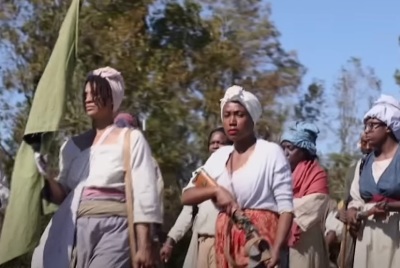Juneteenth and the war against slavery: 5 historic slave revolts
The German Coast Uprising – 1811

The German Coast Uprising was led by Charles Deslandes, a mysterious figure who may have been a free black man who was part of the Haitian Revolution, or an enslaved person born in Louisiana.
Deslandes’ rebellion took place along the eastern side of the Mississippi River, along an area known as the German Coast, because it was initially settled by a German community.
The rebellion began at the Woodland Plantation, where Deslandes worked as a slave driver. He organized the local slave community and created his own independent society based in the local swamps.
Over the course of three days in January 1811, the poorly armed rebels fought with two militias, with around 70 blacks being killed by the time the rebellion was put down.
“The slaves fought with pikes, hoes, and axes. They carried banners, marched to the beat of drums, and were broken into subunits that each had individual leaders on horseback,” wrote Rhae Lynn Barnes of U.S. History Scene.
“The slaves wreaked havoc on the region, set plantations on fire as they marched towards New Orleans, and recruited additional slaves, while white residents fled to the city of New Orleans or the backwoods …”
Surviving rebel leaders were executed and had their decapitated heads put on display. Deslandes was also executed, with his body dismembered and publicly displayed as a warning.




























